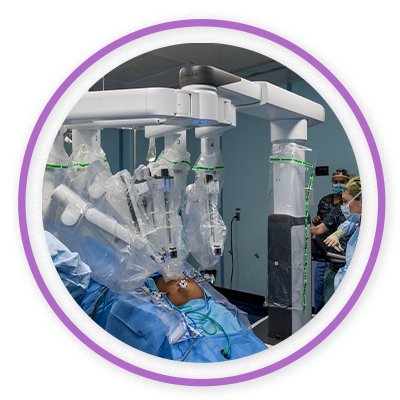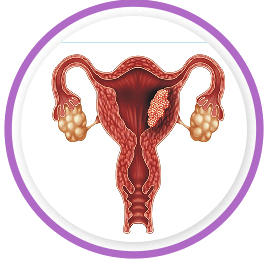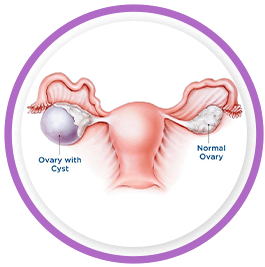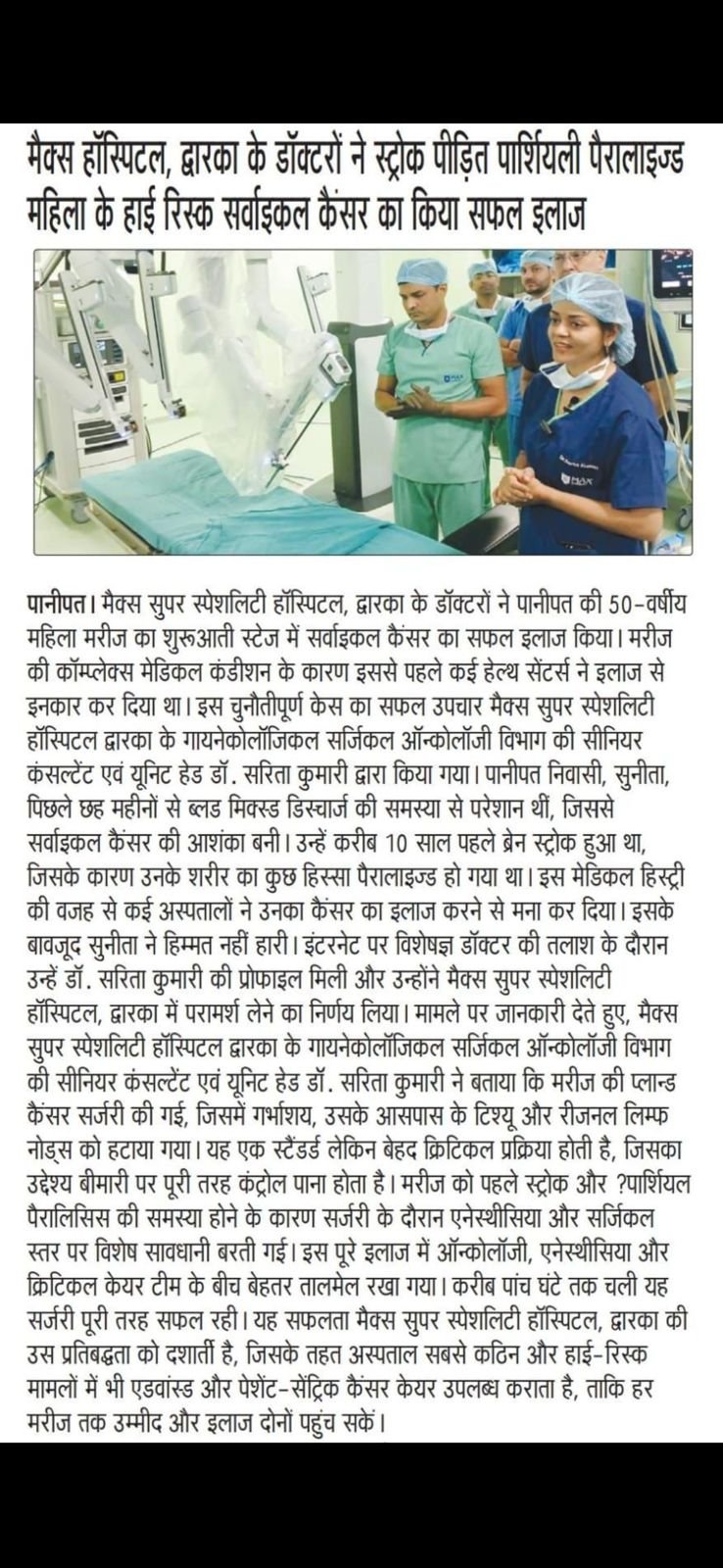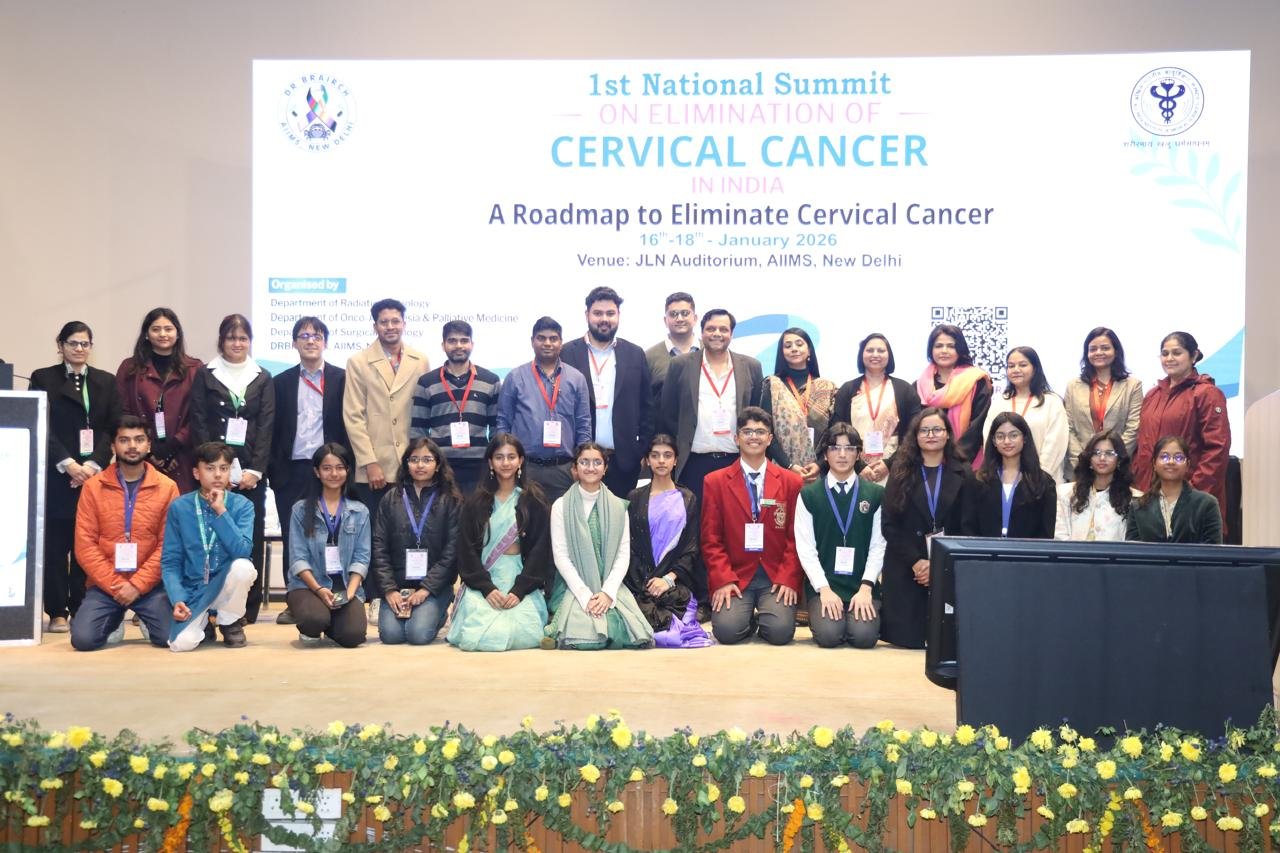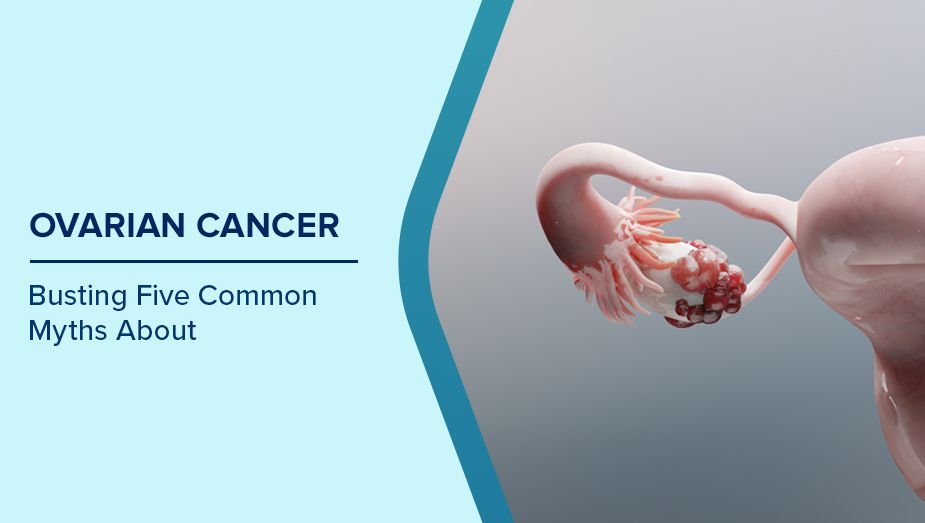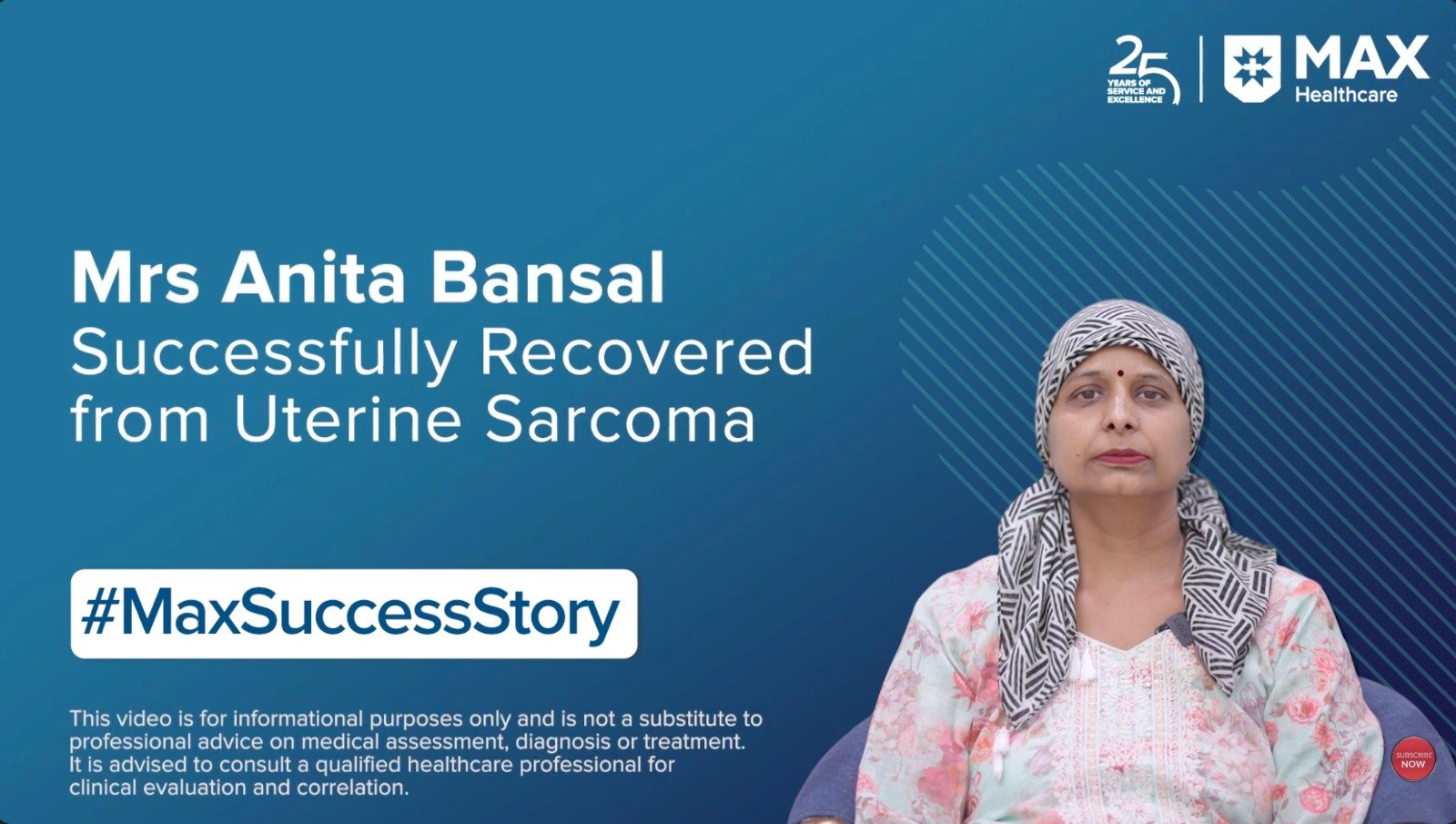Meet The
Doctor
Experience & Expertise
Professional Education
Awards & Achievements
Women Cancer Specialist In Delhi

MBBS (AIIMS, New Delhi)
Meet Dr. Sarita Kumari, an expert Consultant in the field of Gynae Onco Surgery and Surgical Oncology at the Max Super Speciality Hospital in Dwarka. She's spent over ten years mastering her craft. Her focus? Preventing, diagnosis, and dealing with cancers in women. Often praised for her caring touch, she aims for perfection. How does she do this? By combining top-notch surgical skills with a heart for her patients, ensuring the best care possible.
A Legacy of Excellence in Gynaecologic Oncology
Dr. Sarita Kumari's background is impressive in both academics and profession. She is an alumnus of the prestigious and the best medical school in India. She finished her entire training i.e. MBBS, MD, and M.Ch in Gynae Oncology at All India Institute of Medical Sciences (AIIMS), New Delhi. Not just that, she's also a Diplomate of the National Board of Education and a Member of the Royal College of Obstetricians and Gynaecologists, London, UK. She is also a Fellow of International College of Robotic Surgeons (FICRS) and a Fellow/Mentee of the European Society of Gynaecologic Oncology. Her international reputation comes from fellowships and clinical observer programs at famous places like Memorial Sloan Kettering Cancer Center, USA, Jikei University School of Medicine, Tokyo, Japan, Charite Comprehensive Cancer Center, Berlin and Tata Memorial Hospital, Mumbai.
She's had a significant career, lasting more than ten years. She's been an Assistant Professor of Gynae Oncology at big-name institutions: the National Cancer Institute and AIIMS, New Delhi. Her work? Both teaching and cutting-edge cancer research.
International Patient Care
Book An Appointment

Patient Education Videos
News & Events
Patient Education Blog

Why does cervical cancer happen?
Cervical cancer is one of the most common types of cancer affecting women worldwide. Despite the adv
Read More
What is the Exact Cause of Vulvar Cancer ?
Cancer is a term that instill fear and anxiety in the hearts of millions across the globe. Among the
Read More
Why does Vaginal cancer happen?
Vaginal cancer is the growth of cells that start in the vagina. The cells multiply quickly and can i
Read MorePatient Testimonial
Patient Success Story
When to Visit a Gynecologic Oncologist: Key Signs and Symptoms
Female reproductive system cancers, like ovarian, uterine, cervical, vulvar, and vaginal, are fought by the essential branch of gynecologic oncology. These medical experts are finely honed in both gynecology and oncology, offering detailed care. They're all about finding, classifying, and treating these cancers using cutting-edge surgery, chemotherapy, and radiation treatments. Survival rates rocket and life quality boosts thanks to their work. They also lead forward-thinking research and preventions. Gynecologic oncologists with meticulous skill and heart handle complicated cases. They're key players in protecting women's health and honing cancer care.
Who Is a Gynecologic Oncologist?
An expert doctor called a gynecologic oncologist focuses on serious female reproductive system cancer cases. They undergo a ton of learning - they go to medical school, do a residency in women's health, and get more focused training in gynecologic oncology. With this tough training, they're prepared to offer full care - they can diagnose, do complex surgery and give treatment.
Common Gynecologic Cancers
Ovarian Cancer : Labelled as a "silent killer," ovarian cancer can be tough to spot early on because signs like swelling in the stomach and discomfort are vague. Medical experts who focus on women's cancers are good at recognizing and handling ovarian cancer. They use surgeries and precise treatments.
Uterine (Endometrial) Cancer : The most usual type of female reproductive cancer is uterine cancer, often indicated by unusual vaginal bleeding. Detecting it early is key, as is treatment, which can involve minimal access surgery. Pioneering these crucial actions are gynecologic cancer specialists.
Cervical Cancer : Regular Pap tests and HPV vaccines can mostly stop this cancer. Important roles are played by gynecologic oncologists. They use surgery, chemotherapy, and radiation to treat at serious stages.
Vulvar and Vaginal Cancer : These less common cancers need expert treatment. This often combines surgery, radiation, and chemotherapy. Gynecologic oncologists handle this.
The Role of a Gynecologic Oncologist in Patient Care
Gynecologic oncologists are key in fighting female reproductive cancers. They give full and team-based care to patients. They know all the steps in the care process, so the care is designed for each person and works well.
Diagnosis
Gynecologic oncologists use advanced diagnostic tools like imaging, biopsies, and special tests. This helps them know the kind and level of cancer early and exactly. Catching the cancer fast and knowing it well is key for the best treatment.
Surgical Treatment
These experts have skills in many distinct operations. From simple methods like laparoscopy to larger ones like debulking for advanced cancers. Their surgical know-how is crucial for effective cancer care.
Chemotherapy and Targeted Therapies
Doctors specializing in women's cancer create and monitor personalized chemotherapy plans. These plans revolve around each patient's unique type of cancer and genetic makeup. They're also researching new specific treatments to boost the success of therapies.
Radiation Therapy
Radiation oncologists give radiation therapy, and gynecologic oncologists work with them. Together, they weave it into one strong treatment plan. This approach makes sure the best outcome is achieved.
Palliative Care
In advanced-stage cancers, gynecologic oncologists focus on lessening symptoms. They try to boost the quality of life. They offer caring and comforting support.
Follow-Up and Survivorship Care
Care after treatment is key to watching for return symptoms and handling lasting side effects. Gynecologic oncologists lead patients by guiding them to regular check-ups and programs for survivors, aiding them in regaining their health and wellbeing.
Why See a Gynecologic Oncologist?
Seeing a gynecologic oncologist for high-level care for gynecologic cancers, such as ovarian, cervical, and uterine cancers. These specialists are skilled in both gynecology and oncology, creating detailed treatment plans. Research shows that women cared for by gynecologic oncologists have better results. That includes higher survival rates and fewer recurring issues, compared to care from regular doctors. Their deep knowledge of surgery, chemotherapy, and targeted therapies offers the most effective, personalized care. That boosts life quality and outlook for patients wrestling with these tough conditions.
Advances in Gynecologic Oncology
Minimally Invasive Surgery : Surgeries have evolved so much, thanks to things like laparoscopy and robot-helped operations! These methods mean only small incisions are needed, there's less hurt afterwards, and people get better quicker. Also, it means fewer things can go wrong, but the surgeon can still work really precisely and correctly.
Immunotherapy : Immunotherapy is altering the landscape of cancer treatment. It works by helping the immune system identify and fight cancer cells. Though this treatment is still being researched, it shows potential for battling gynecologic cancers like ovarian and cervical types. This brings hope for better survival statistics.
Personalized Medicine : Innovations in genetic and molecular studies let gynecological oncologists personalize treatments for every patient. Knowing the specific traits of a tumor aids in improving therapies. These can include specially designed drugs and tailored chemotherapy. This leads to improved results and fewer undesired reactions.
HPV Vaccination and Prevention : The HPV vaccine's advent has greatly lowered cervical cancer instances globally. It targets the human papillomavirus - a primary instigator of cervical cancer. This vaccine emphasizes how vital prevention is in gynecologic oncology. It also puts a spotlight on the need for regular checks and early action.
Patient Journey with a Gynecologic Oncologist
Initial Consultation
Usually, an abnormal Pap test, biopsy, or imaging result leads to a referral to a gynecologic oncologist. On the first visit, the patient's medical past is studied by the specialist. A full physical check-up happens too. Then, they suggest extra tests to double-check the diagnosis.
Diagnosis and Staging
It's crucial to diagnose correctly and figure out the cancer stage. That defines the most effective treatment. This part uses top-notch image manners like CT scans, MRIs, and PET scans, along with biopsies. Their job is to size up the cancer and see if it's spread.
Treatment Planning
After identifying the disease, the cancer specialist for women devises a unique care strategy to suit the individual's unique requirements. The strategy could involve various techniques like surgery, drug treatment, or radiation therapy. The mix hinges on the form and phase of the cancer.
Active Treatment Phase
In therapy, the individual follows prescribed treatments. The gynecologic oncologist monitors their advance closely, takes care of any adverse effects, and changes the plan as necessary to get the best results.
Follow-Up and Monitoring
Once treatment is done, folks make routine visits to check in case it comes back and deal with any ongoing side effects. Care for survivors offers continuing help and a better life.
What Surgeries are Performed by Gynecologic Oncologists?
Gynecologic oncologists use surgery as a main way to treat cancers of a woman's reproductive system. Which surgery is used depends on where the cancer is, how far it's gotten, and the woman's health. Here are the usual surgeries used in this area.
Hysterectomy
Let's talk about a medical procedure called a hysterectomy. This is when the uterus is taken out, along with cervix and other tissue around the uterus. It's often used when treating cancers of the uterus or cervix, but only if they're in the early stages. Is the whole uterus removed? Sometimes we call that a total hysterectomy. But sometimes, only a part is removed. We call that subtotal hysterectomy. Some cases demand removal of tissues adjacent to the uterus and cervix e.g. in cancer cervix which is known as radical hysterectomy. One last thing, this can be taken on in several ways, such as open surgery, laparoscopy, or using robotic techniques.
Oophorectomy and Salpingectomy
When one or both ovaries are removed, it's called an oophorectomy. A salpingectomy means getting rid of the fallopian tubes. Surgeons perform this mainly to fight ovarian and tubal cancers. Plus, they can stop these diseases before they even start in women with risky genes. Usually, these surgeries go hand in hand with a hysterectomy.
Radical Trachelectomy
A surgery that saves fertility as it takes out the cervix and nearby parts but leaves the uterus untouched. It's a choice for ladies with early-stage cervical cancer who desire to keep their childbearing ability.
Vulvectomy
A vulvectomy is a procedure that treats vulvar cancer. It does this by taking out part or even all of the vulva. There are two types of vulvectomy: simple and radical. A simple vulvectomy works on the skin whereas a radical one removes tissues that are deeper. Depending on how far the cancer has advanced, the radical vulvectomy might also include nearby lymph nodes.
Pelvic Exenteration
Pelvic exenteration is a comprehensive surgery aimed at treating severe or returning gynecologic cancers. It calls for the removal of the uterus, cervix, and vagina, and in certain cases, the bladder or rectum. This method is saved for intense situations where other therapies haven't worked.
Lymphadenectomy
The surgeons perform lymphadenectomy, a practice of taking out lymph nodes, to check for cancer spread. This procedure is essential in determining the stage of cancers like cervical, uterine, and ovarian and devising a strategy.
Tumor Debulking Surgery
The task of debulking surgery is to cut back the size of the tumor. It's usually seen in later stage ovarian cancer. This surgery aims to remove as much of the tumor as possible. This helps make other treatments like chemotherapy work better.
Sentinel Lymph Node Biopsy
In a gentle, less intrusive way, certain lymph nodes that cancer likely affects are removed. This method is often employed in early cervical, endometrial and vulvar cancers. It helps determine the extent of cancer spread without the need to remove a lot of lymph nodes.
Fertility-Preserving Surgeries
Young women who want to keep their ability to have children can try procedures like moving the ovaries or intense neck-of-womb surgery. These methods can successfully treat cancer and keep the chance to reproduce.
Minimally Invasive Surgeries
Gynecologic cancer treatments are seeing more use of laparoscopic and robotic-assisted surgeries. Why? They offer advantages such as smaller incisions, quicker healing, and less discomfort, unlike the usual open surgeries.
Surgical Goals
Gynecologic oncology surgeries aim to cure cancer, determine the disease stage, ease symptoms, and lower cancer threats in patients at high risk. The procedures are customized based on personal needs and treatment paths.
How to Choose Gynecologic Oncologist in Delhi
If you’re wondering who is the best gynecologic oncologist in India? Finding the appropriate cancer specialist in women's health is key to successful healing. Here are important points to guide your smart choice:
Qualifications and Certifications
Make sure the expert is board-certified in gynecologic oncology and has a broad range of experience treating your exact kind of cancer. A robust educational history and connections to respected medical institutions show proficiency.
Hospital Affiliation
Pick a doctor based at a hospital loaded with top-notch diagnostic and treatment tools. Quality gets a boost when diverse medical professionals team up.
Reputation
Check the doctor's reputation by looking at patient reviews, testimonials, and trusted health provider's referrals. Good feedback on results and caring treatment shows they are dependable.
Comprehensive Care
Go for a gynecologic oncologist who provides comprehensive, individualized care. It covers accurate diagnosis, customized treatment strategies (maybe surgery, chemotherapy, or radiation), and post-treatment care for tracking and surviving.
Accessibility
Choose a gynecologic oncologist close to you in Delhi. This ensures quick, easy appointments and continuing care during treatment.
What Is the Difference Between a Medical Oncologist and a Gynecologic Oncologist?
| Aspect | Medical Oncologist | Gynecologic Oncologist |
|---|---|---|
| Primary Focus | Treats every kind of cancer without surgery. Use techniques like chemotherapy, targeted methods, and bolstering the immune system. | Focuses on discovering and treating cancers in women's reproductive organs. |
| Scope of Treatment | Covers cancer care for all body systems. | Specifically focus on cancers of the uterus, ovaries, cervix, vagina, and vulva. |
| Specialized Training | Trained in overall oncology and widespread cancer therapies. | Receives training in gynecology and oncology, including advanced surgical strategies. |
| Treatment Methods | Use chemotherapy, immunotherapy, targeted therapies, and hormonal treatments. | Offers surgical procedures, chemotherapy and advice regarding radiation therapy, and post-treatment care. |
| Collaboration | Works with surgical specialists, radiation oncologists, and other professionals. | Frequently heads the multidisciplinary team for gynecologic cancer care. |
| Role in Surgery | Operates without performing surgical procedures; focuses on whole-body treatments. | Performs specialized surgeries like hysterectomies, oophorectomies, and debulking procedures. |
| Patient Population | Aids all cancer patients, regardless of gender or age. | Mainly treats female patients with reproductive system cancers. |
| Preventive Care | Gives genetic counseling and monitors high-risk patients. | Prioritize early cancer detection, patient screenings (like Pap tests), and preventive surgeries. |
| Examples of Conditions Treated | Treats breast cancer, lung cancer, leukemia, lymphoma, among others. | Specializes in ovarian cancer, cervical cancer, uterine cancer, vulvar cancer, and vaginal cancer. |
Why Choose Dr. Sarita Kumari as the Best Gynaecologist Oncologist in Delhi?
Are you seeking an exceptional gynecologic oncologist in Delhi or even India? Dr. Sarita Kumari is a key choice among the Best Gynecologic Oncologists in Delhi. Unmatched skill, caring approach, and the use of modern therapies highlight her service. Dr. Sarita Kumari is a famed figure in India, with a strong reputation in the fields of gynecologic oncology and genetic counseling. Various qualifications like MBBS, MD, and MCh, all in Gynecological Oncology, were earned from the esteemed AIIMS, New Delhi. Her impressive skills were further bolstered by receiving advanced instruction in cancer treatment methods from overseas.
With a deep background in genetic counseling, Dr. Sarita helps patients understand the risks of inherited cancers and decide what to do. She puts patients first, creating specific plans for everyone's unique needs. Whether you meet her at Dwarka's Max Super Specialty Hospital, or you chat virtually from anywhere in India, people trust Dr. Sarita Kumari for full-service women's cancer treatment.
If you're on the lookout for the best oncology doctor in Delhi, a surgical procedure, or full-blown cancer therapy, Dr. Sarita Kumari stands ready to navigate you through. Just key in "gynecologic oncologist near me" for more information or to set up a meeting. Start your journey to healing today.


